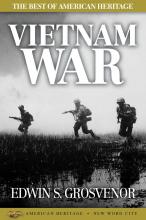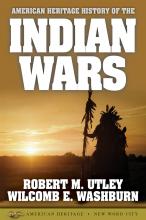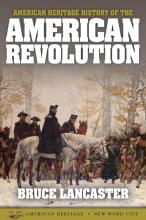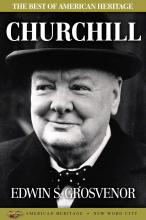
|
The Best of American Heritage: Churchill (EBook)
Winston Churchill had genius as a leader, statesman, orator, and writer, but as Henry Grunwald writes in this extraordinary book, "one of his greatest talents was being a man - a man both legendary and loved, admirable and amusing, larger than life and closer to Earth than most great figures."
Here, John D. Eisenhower, Pamela C. Harriman, John Lukacs, Kenneth McArdle, William Manchester, and A. L. Rowse bring Churchill vividly to life, assessing his place in history and exploring his relationships with world leaders and family alike.
|

|
American Heritage History of Mexico (EBook)
"Remarkably well balanced and sound . . . "
- The New Republic
Here, from award-winning historian Henry Bamford Parkes and the editors of American Heritage, is the dramatic story of Mexico - from the Aztecs, Maya, and other ancient peoples who gave birth to a vast civilization to the Spanish Conquest, the Mexican-American War, the Mexican Revolution, and Mexico's role in World War II. Historian Parkes brings vividly to life the legendary figures Montezuma, Cortés, Santa Anna, Juárez, Maximilian, Díaz, Pancho Villa, and Zapata.
|
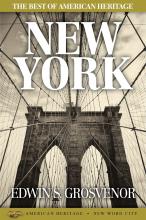
|
The Best of American Heritage: New York (EBook)
There is only one New York. It didn't make America, but it made possible the America we've come to know. Here - from American Heritage magazine and such historians as Nathaniel Benchley, David McCullough, and William V. Shannon - is its remarkable story: from Henry Hudson's historic voyage and the sale of Manhattan Island to New York's occupation by British forces during the Revolution and the construction of the Brooklyn Bridge, Central Park, and the Whitney Museum.
|
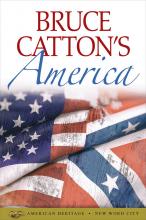
|
Bruce Catton's America (Paperback)
No one has ever told America's story with more grace, clarity, and emotional power than Pulitzer Prize winner Bruce Catton. In his books, ranging from the celebrated Civil War trilogies to the account of his boyhood in back-country Michigan, Catton brought the people of the past to such vivid life that he became the nation's best-loved and most widely read historian. |
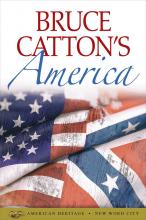
|
Bruce Catton's America (EBook)
No one has ever told America's story with more grace, clarity, and emotional power than Pulitzer Prize winner Bruce Catton. In his books, ranging from the celebrated Civil War trilogies to the account of his boyhood in back-country Michigan, Catton brought the people of the past to such vivid life that he became the nation's best-loved and most widely read historian. |
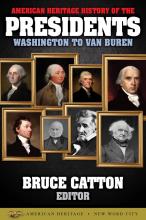
|
American Heritage History of Presidents: Washington to Van Buren (EBook)
The best way to examine the presidency now, writes the Pulitzer Prize-winning historian Bruce Catton, "is to examine the lives and personalities of the men who have held it, because the presidency today is in many ways the sum of large and small contributions made by the different presidents." Here, in the first volume of American Heritage's history of presidents are the dramatic stories of the first eight men to hold the office: George Washington, John Adams, Thomas Jefferson, James Madison, James Monroe, John Quincy Adams, Andrew Jackson, and Martin Van Buren.
|

|
Scandinavia: A History (Audiobook)
Here is the dramatic story of Scandinavia - from its earliest Germanic origins and Viking sea raids to its battles for independence and its involvement in World War II. Denmark, Finland, Norway, and Sweden, writes award-winning historian Ewan Butler writes, struggled through unions and separations, with both outsiders and each other, developing their own personalities and languages yet retaining their ancient connections.
|

|
Scandinavia: A History (EBook)
Here is the dramatic story of Scandinavia - from its earliest Germanic origins and Viking sea raids to its battles for independence and its involvement in World War II. Denmark, Finland, Norway, and Sweden, writes award-winning historian Ewan Butler writes, struggled through unions and separations, with both outsiders and each other, developing their own personalities and languages yet retaining their ancient connections.
|

|
Scandinavia: A History (Paperback)
Here is the dramatic story of Scandinavia – from its earliest Germanic origins and Viking sea raids to its battles for independence and its involvement in World War II. Denmark, Finland, Norway, and Sweden, writes award-winning historian Ewan Butler, struggled through unions and separations, with both outsiders and each other, developing their own personalities and languages yet retaining their ancient connections
|
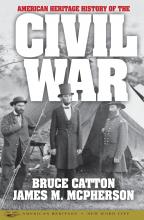
|
American Heritage History of the Civil War (EBook)
Here is Pulitzer Prize-winning author Bruce Catton's unsurpassed account of the Civil War, one of the most moving chapters in American history. Introduced by Pulitzer Prize-winner James M. McPherson, the book vividly traces the epic struggle between the Blue and Gray, from the early division between the North and South to the final surrender of Confederate troops.
Reviews
"Scholarly, judicious, clear, and unfailingly interesting." --New York Times
From Library Journal |




